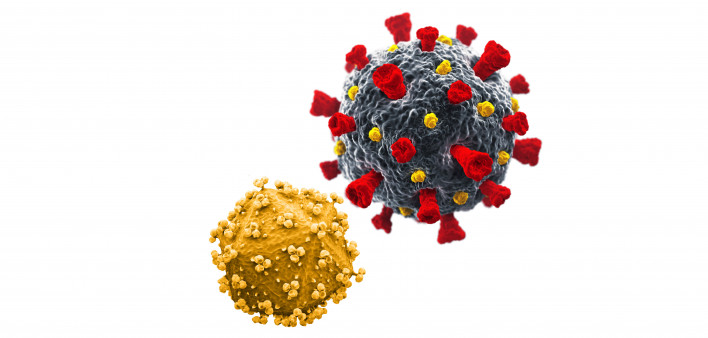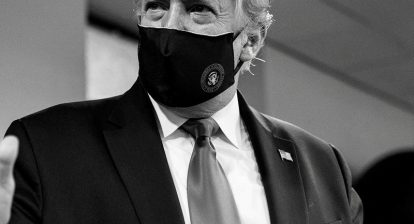Questions remain about whether people with HIV are more at risk for severe COVID-19, as evidence to date is mixed.
By National Institutes of Health via POZ
The COVID-19 pandemic is affecting people with or at risk for HIV both indirectly, by interfering with HIV treatment and prevention services, and directly, by threatening individual health. An effective response to these dual pandemics requires unprecedented collaboration to accelerate basic and clinical research, as well as implementation science to expeditiously introduce evidence-based strategies into real-world settings. This message comes from a review article co-authored by Anthony S. Fauci, MD, director of the National Institute of Allergy and Infectious Diseases (NIAID), part of the National Institutes of Health, and colleagues published in the Journal of Infectious Diseases.
By disrupting critical health care services, the COVID-19 pandemic threatens the substantial progress made in reducing the global burden of HIV. The authors note that the toll of COVID-19 on the HIV pandemic could be mitigated by increasing access to HIV treatment, for example, by prescribing multiple months of medication, and ensuring that HIV testing and prevention services are maintained.
Many questions remain as to whether people with HIV are more at risk for infection with SARS-CoV-2, the virus that causes COVID-19, and for developing severe COVID-19, as evidence to date is mixed. Rates of infection with SARS-CoV-2 are similar in people with and without HIV. However, populations that are disproportionately affected by HIV—including Black/African American and Hispanic/Latinx populations—also are at increased risk for acquiring SARS-CoV-2 infection and for developing severe COVID-19. Multiple factors contribute to the burden on these populations, including systemic health disparities, socio-economic inequalities and a higher prevalence of comorbidities.
While HIV infection itself does not appear to increase risk for severe COVID-19, mounting evidence indicates that specific comorbidities in people with HIV are linked to greater COVID-19 severity. Even when HIV is well-controlled with treatment, people with HIV bear a significant burden of numerous comorbidities, many of which have also emerged as risk factors for severe COVID-19. These comorbidities include certain cancers, chronic kidney disease, chronic obstructive pulmonary disease, cardiovascular disease, obesity and type 2 diabetes.
Accelerated development and clinical testing of prevention and treatment strategies are urgently needed to mitigate the juxtaposition of the HIV and COVID-19 pandemics, the authors conclude. This includes basic research on the interactions between HIV and SARS-CoV-2 at both the cellular and molecular levels, as well as clinical studies to evaluate outcomes for people with HIV and SARS-CoV-2 co-infections, including the impact of comorbidities.







